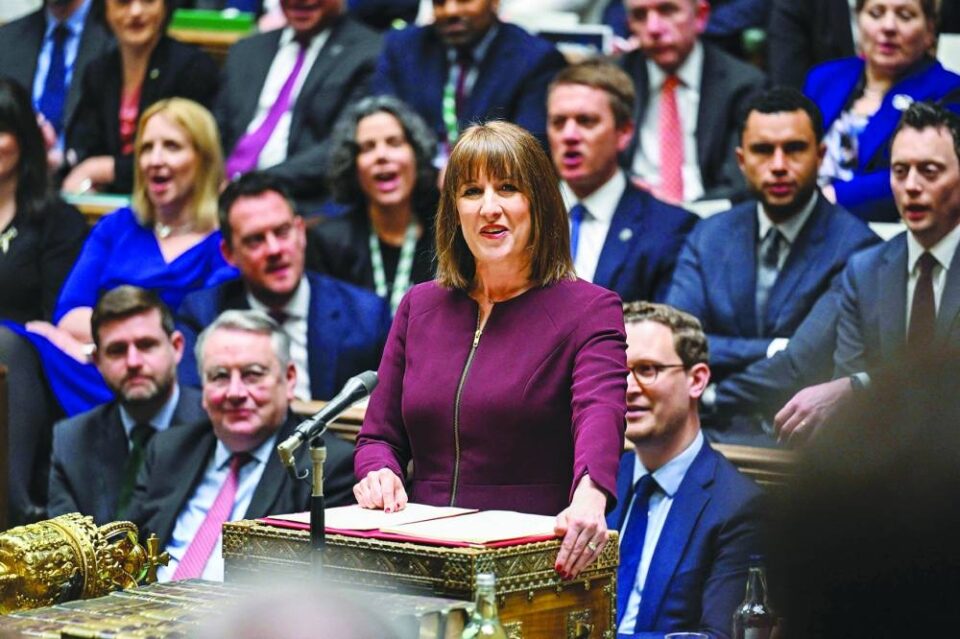British Finance Minister Rachel Reeves trimmed her plans for spending increases in a budget update yesterday that provided some reassurance for investors, but the risks of a global trade war could put fresh tax hikes on the table later this year.Britain’s budget watchdog halved its forecast for economic growth in 2025 and said a catch-up towards the end of the decade would not make up all of the difference. It also raised its forecasts for public borrowing and inflation.Reeves sought to pin the downgrade on “a changing world,” citing the war in Ukraine and uncertainty overhanging the world economy which is at risk of upheaval from US President Donald Trump’s trade tariff plans.“The global economy has become more uncertain, bringing insecurity at home as trading patterns become more unstable and borrowing costs rise for many major economies,” she said.However, the budget watchdog said an increase in employers taxes announced by Reeves in her first full budget last October would weigh on growth in earnings for workers from next year, representing another brake on the economy.Reeves said she would not let the slowdown jeopardise her budget plans and she acted to rebuild a nearly £10bn ($12.90bn) fiscal buffer that had been more than wiped out in just five months by the weaker economic outlook and higher borrowing costs.“These fiscal rules are non-negotiable. They are the embodiment of this government’s unwavering commitment to bring stability to our economy,” she said in her speech, which focused heavily on increased defence spending.One of Reeves’ self-imposed fiscal rules is to aim to balance day-to-day public spending with tax revenues by 2030. To get back on target, she shaved growth in day-to-day spending on public services to 1.2% a year in real terms from 1.3%.The centre-left Labour government also announced £4.8bn of cuts to welfare payments, angering some of its lawmakers.A government assessment of the changes, which aim to slow a surge in sickness-related benefits, estimated 3.2mn households would lose out and 250,000 additional people would enter relative poverty after housing costs by the end of the decade.
